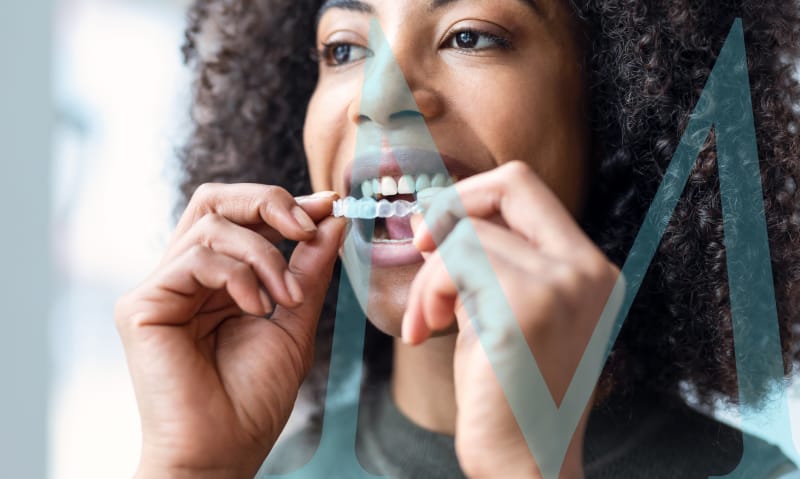Are Bite Guards, Night Guards, Sports Guards, and Mouthguards All the Same Thing?

Have you ever considered how important your teeth are to your overall well-being? Our teeth are involved in much more than we realize—not only do they help us bite and chew our food, but they are also critical in helping us speak properly. And perhaps one of the most overlooked benefits of our teeth is our smile. When we smile, it provides us with a natural boost to our mood and makes those around us feel better too.
For this reason, it is vital that we do what we can to prevent damage to our teeth. Bite guards, night guards, sports guards, and mouthguards are all helpful appliances in protecting our teeth. But what are they each used for? We’ll break it down and help you understand the key differences between each dental appliance.
Bite Guards, Night Guards, Sports Guards, and Mouthguards: What’s the Big Difference?
You may be active in athletics, and your dentist recommended wearing a sports guard. Or, maybe you snore at night, and you’ve been told that an oral appliance can help you get a better night’s rest. Maybe you grind your teeth at night and are wearing away the dental enamel, so your dentist has suggested a night guard. These different types of oral appliances and mouthguards can be a bit confusing.
Read on to understand the ins and out of each, and why they are all critical in helping you protect your oral health and overall well-being.
Sports Guards
Let’s start with this one. After all, it’s estimated that nearly 20% of the U.S. population is involved in sports or exercise daily. This means that every day, many of us are getting out there to exercise, but are also potentially risking the health of our teeth. During sports and other physical activities, trips, falls, and fumbles occur quite often. And many of these can inadvertently lead to tooth damage. Dentists recommend sports guards to those engaged in athletics because they provide a protective shield over your teeth while playing contact sports.
Night Guards
According to Cedars Sinai, teeth-grinding and jaw-clenching is a common condition that affects up to one-third of adults in the daytime and more than one in 10 in their sleep. A night guard, also called a dental splint or occlusal guard, is a custom-fitted device worn over the teeth while sleeping to prevent clenching and grinding. It acts as a cushion, absorbing the forces generated by these actions and preventing damage to the teeth and surrounding structures.
By reducing the amount of force and pressure on the teeth and jaw, a night guard can also alleviate symptoms like headaches, jaw pain, and muscle soreness; improve sleep quality; and manage the symptoms of bruxism (clenching and grinding), leading to better oral health and well-being.
Bite Guards
A bite guard is a type of oral appliance designed to correct problems with bite alignment or how the upper and lower teeth fit together. Bite guards are typically used to treat conditions such as temporomandibular joint disorder (TMD) or malocclusion, which can cause jaw pain, headaches, and other issues.
Unlike sports or night guards, bite guards are not typically designed to protect the teeth from trauma or prevent teeth grinding and clenching. Instead, they are custom-fitted to a patient’s mouth and made from a rigid material that helps to reposition the jaw and improve bite alignment. Bite guards are typically worn for more extended periods than sports guards or night guards, and are often used in conjunction with other treatments, such as physical therapy or orthodontic treatments.
Mouthguards
The term “mouthguard” tends to be used for all of the above types of dental appliances.
The key difference between a mouthguard and other guards is their intended use. Mouthguards, including sports guards, are designed to protect the teeth from physical injury during activities that could cause trauma. In contrast, bite guards and night guards are designed to address specific dental problems, such as bite alignment issues and bruxism (teeth grinding and clenching).
Custom mouthguards are the best option.
While it is possible to purchase all these mouthguards over the counter (OTC), custom-fitted oral devices are best. Custom mouthguards are designed by your dentist to fit the unique shape of your mouth, ensuring a comfortable and secure fit. OTC versions may not fit properly, resulting in discomfort, difficulty speaking, and an increased risk of injury.
Further, custom mouthguards are made of higher-quality materials that are more durable and offer better protection than OTC versions. Dentists such as your team in Greenville, SC, use high-quality materials to create a mouthguard that can withstand the impact of physical activity, reducing the risk of injury to the teeth and mouth.
Finally, a custom-fitted mouthguard is designed to accommodate specific dental issues, such as misaligned teeth, that can increase the risk of injury during sports or physical activity. OTC mouthguards are not able to address these issues. For these reasons, a custom-fitted mouthguard is a better investment in dental health and safety, providing superior protection and comfort compared with OTC versions.
Dr. Monroe can help with all of your custom mouthguard needs.
Whether you need a sports guard, bite guard, night guard, or all three, Dr. Monroe at Monroe Family Dentistry can help. Request an appointment today for your next professional dental cleaning, and be sure to ask us about our approach to custom-fitted mouthguards. Our main priority is to help you protect your teeth and oral health. These oral devices are an excellent way to protect your teeth during sleep, play, or anytime throughout the day.